About the Impact Report
About Our Organizations
The Alliance to Save Energy is a bipartisan, nonprofit coalition of business, government, environmental, and consumer leaders advocating to advance federal energy efficiency policy.

The American Council for an Energy-Efficient Economy (ACEEE) is a nonprofit research organization that develops transformative policies to reduce energy waste and combat climate change. With our independent analysis, we aim to build a vibrant and equitable economy – one that uses energy more productively, reduces costs, protects the environment, and promotes the health, safety, and well-being of everyone.
The Business Council for Sustainable Energy (BCSE) is a clean energy trade association representing the broad portfolio of energy efficiency, natural gas, and renewable energy industries, as well as energy storage, sustainable transportation, and emerging decarbonization technology providers. Our members include investor-owned utilities, public power, independent power producers, project developers, equipment manufacturers, and environmental and energy market service companies.
Acknowledgments
This report was developed based upon funding from the Alliance for Sustainable Energy, LLC, Managing and Operating Contractor for the National Renewable Energy Laboratory for the U.S. Department of Energy. The Alliance to Save Energy, American Council for an Energy-Efficient Economy (ACEEE), and Business Council for Sustainable Energy (BCSE) would like to sincerely thank the following individuals and institutions for their financial support and thoughtful feedback in the development of this report:
- Jack Mayernik, National Renewable Energy Laboratory (NREL), Department of Energy (DOE)
- Amber Sisson, New York Power Authority (NYPA)
- Nanette Lockwood and Hannah Black, Trane Technologies
- Robert Johnson, Hannon Armstrong
We also express our appreciation for individuals who provided technical support, guidance, and original data for specific indicators, including:
- Ben Somberg, Rohini Srivastava, Neal Elliott, Weston Berg, Nora Esram, Jen Amann, Sara Hayes, Shruti Vaidyanathan, Dave Ribeiro, and Jonah Eisen, ACEEE
- Joanna Mauer and Brian Fadie, Appliance Standards Awareness Project
- Tyler Grubbs, Boston Government Services
- Pamela de los Reyes, Energetics
- John O’Neill, Steve Dunn, and Dale Hoffmeyer, Department of Energy
- Henry Litman, Coalition for Green Capital
- Zifei Yang, International Council on Clean Transportation
- Cliff Majersik, Institute for Market Transformation
- Natalie Mims Frick, Sean Murphy, Paul Sheaffer, and Amy Pevzner, Lawrence Berkeley National Laboratory
- Jack Mayernik, National Renewable Energy Laboratory
- Torsten Glidden, Lindahl Reed
- Ryan Meres, Residential Energy Services Network
- Beth Conlin, Jonathan Passe, Michael Zatz, and Zach Shadid, U.S. Environmental Protection Agency
- Ben Evans and Deisy Verdinez, U.S. Green Building Council
Staff Contributors
Paula Glover, President, Alliance to Save Energy
Vincent Barnes, Senior Vice President for Policy & Research, Alliance to Save Energy
Sam Friedberg, Manager for Research and Policy Analysis, Alliance to Save Energy
Steve Nadel, Executive Director, ACEEE
Lowell Ungar, Ph.D., Director of Federal Policy, ACEEE
Aimee Bell-Pasht, Senior Research Associate, ACEEE
Lisa Jacobson, President, BCSE
Laura Tierney, Director, International Programs
Lizzie Stricklin, Communications Manager, BCSE
A Comment on Report Methodology
Energy efficiency technologies span a variety of sectors, and data collections can vary in frequency, detail, completeness, and collection methodology. In some cases, different data collection approaches by different entities lead to alternative conclusions; in these cases, this report attempts to focus on those insights that can be presented with confidence, and footnote other considerations for the reader’s awareness. In other areas, the most recent available data are several years old, sometimes dating back to 2011. These older data sources were included where alternatives were not available, to complete the picture of energy efficiency’s trajectory and impacts. However, both issues – conclusiveness and regularity of collection — demonstrate an important knowledge gap that can undermine society’s understanding of energy efficiency’s impacts. Moving forward, filling such knowledge gaps will be paramount.

